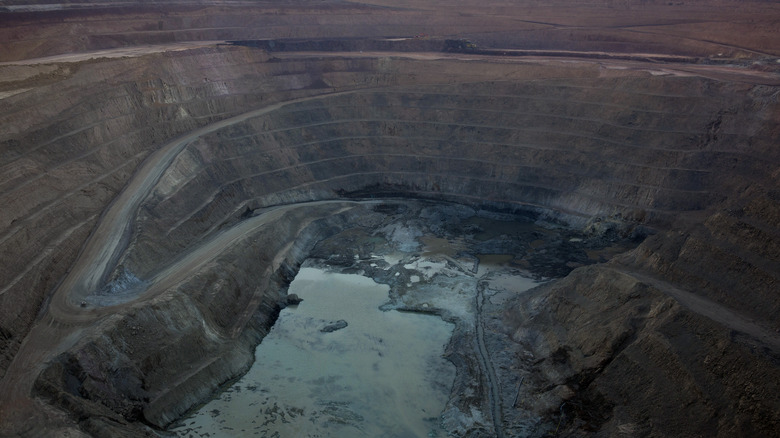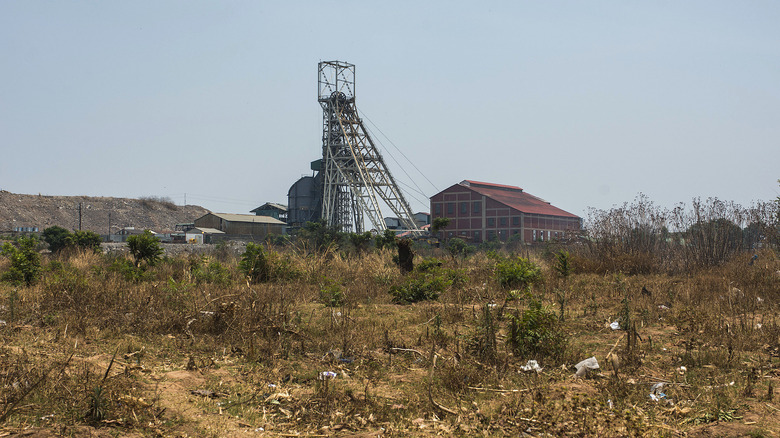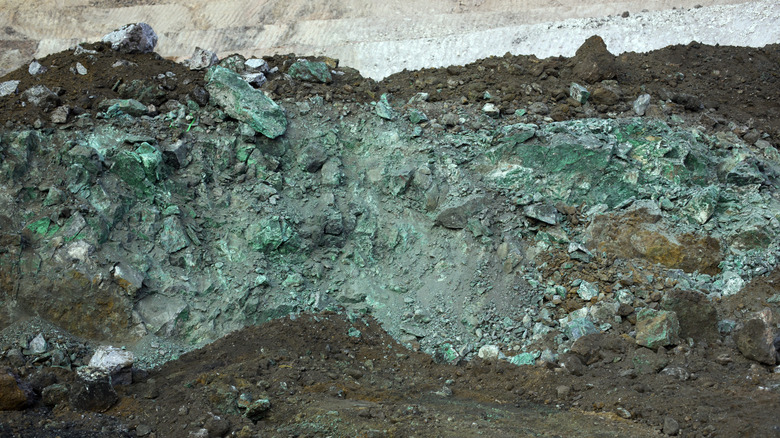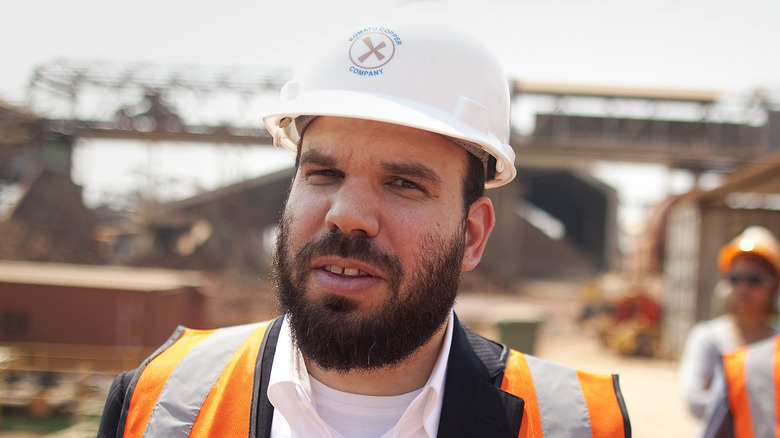The Truth About The Great Mining Robbery
In the early 2010s, the Democratic Republic of Congo was subject to one of the largest heists in history. Over the course of two years, up to $2 billion was reportedly looted from the country's mining industry, and it's estimated that over 18 years, an additional $2 billion in royalties will be lost as well. And all of this comes out of just five mining transactions.
This heist was neither the first nor the last time that an African country was looted through its mineral resources. "When multinational companies own the land and the mines of Africa, this is the most direct way of draining the continent," noted Joyce R. Aryee, CEO of Ghana Chamber of Mines. When it comes to undervaluing mineral resources, it seems as though offshore companies will squeeze every last cent they possibly can out of a country.
The main suspect of the heist, Israeli billionaire Dan Gertler, has been accused of "looting Congo at the expense of its people." Gertler, however, claimed that he should be awarded a Nobel Prize for his work "developing" the Democratic Republic of the Congo. This is the truth about the Great Mining Robbery.
Undervaluation of minerals
Across the African continent, mineral exporters in numerous countries sometimes undervalue their exports, often in an effort to avoid paying mineral royalty tax or simply to rob the respective country of as much revenue as possible.
In "Mineral Mining in Africa," Evaristus Oshionebo writes that this phenomenon is especially noticeable in Guinea, such as when Beny Steinmetz Group Resources (BSGR) was granted a concession to mine iron ore. Two years later, in 2010, when BSGR sold a 51% stake for $2.5 billion, according to Reuters, they earned a 3,000% profit, a gain "two times higher than the entire national budget of Guinea in 2011."
Meanwhile, CGTN Africa reports that in 2020, mines ministry officials in Zambia declared that they would be collecting samples from mines around the country in order to prevent companies from undervaluing mineral exports. At the time, foreign mining companies operating in Zambia included Glencore, First Quantum Minerals, Vedanta Resources, and Barrick Gold. It's through this reported scheme that companies like Glencore have revenues "10 times that of the GDP of Zambia," per War on Want. As of February 2021, the Zambian government purchased both Vendanta's and Glencore's operations, per Bloomberg.
According to the African Network of Centers for Investigative Reporting, companies use offshore companies created by Mossack Fonseca to assist in oil, gas, and mining deals and exports in up to 44 African countries.
Robbing the DRC of billions
Between 2010 and 2012, over the course of five mining transactions, the Democratic Republic of the Congo (DRC) was reportedly robbed of over $1 billion. These deals were allegedly orchestrated by Israeli billionaire Dan Gertler, who also partnered with the mining company Glencore, reports Transparency International. Due to his friendship with President Joseph Kabila, Gertler was able to act as a middleman in mining asset deals and by purportedly undervaluing copper and cobalt, the DRC may have lost between $1.36 billion and $1.95 billion in revenue, per africanews.
While the mining assets were valued at around $1.63 billion, they were sold for $275 million, one-sixth of their market value. After being sold, offshore companies sold concession rights with a very high rate of return, averaging 512% and "rising to 980% in one deal," Oshionebo writes in "Mineral Mining in Africa."
And this wasn't the end of the robbery. It's estimated that another $1.76 billion that would've come out of royalties will be lost between 2021 and 2039. All in all, due to the alleged "dubious contracts" of Gertler, the DRC has been robbed of at least $4 billion.
The Africa Report writes that in 2013, Gertler held over 50 extractive licenses for oil, cobalt, diamonds, and copper, with a series of companies that he'd established in tax havens.
What happened to Dan Gertler?
In May 2013, the Africa Progress Report first highlighted how much Dan Gertler was purportedly robbing from the DRC. The report estimated that the losses from just the revenue of the five deals was equivalent to more than double the budget for both education and health in 2012 combined. In addition, the report underlined that their investigation was likely "a small share of the overall losses caused by underpricing."
In 2017, the United States Treasury placed Gertler under sanctions and was prohibited from doing business in U.S. dollars or having any connection to U.S. companies, writes The Africa Report. Although the sanctions were lifted in January 2021, according to DW, they were reimposed in March 2021.
For the time being, it seems as though the DRC may slowly be resisting Gertler. In June 2021, the Congolese government refused to renew exploration permits for two oil zones in Lake Albert, which Gertler had held since 2010. However, the mining sector continues to refuse to act against Gertler, likely because Albert Yuma Mulimbi, who was one of President Kabila's close associates, "still has a hand in many mining files."



